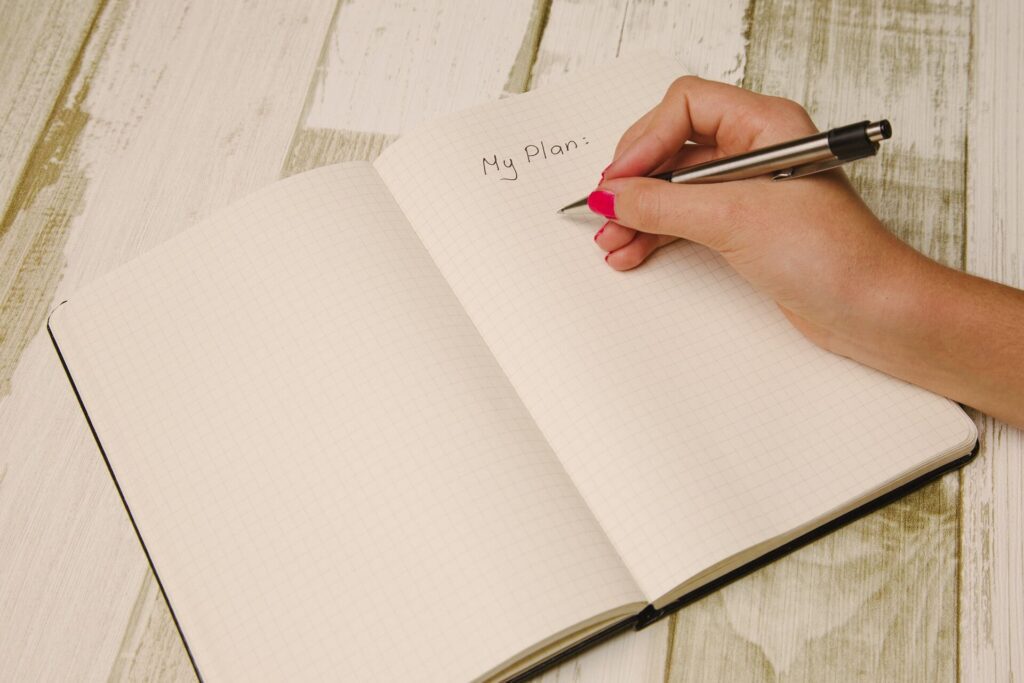
Why Journaling is Good for Mental Health: Benefits, Types & How to Get Started
Maintaining good mental health is crucial for overall well-being as this is necessary for a person to be able to function physically, psychologically, socially and emotionally well. There are a lot of ways to promote and enhance mental health, and one of the simplest methods is journaling.
Throughout this article, you will get an idea of why journaling is good for your mental health, as well as learn about the psychology behind journaling along with its benefits, types and how to get started with it.
What is journaling?
Journaling is a way to record your thoughts, feelings, and experiences on paper on a regular basis – but why is journaling good for our mental health? Similar to making art, the act of writing allows us to release our stress and worries by writing it all down and letting go of negative thoughts as we do so. This activity can support your mental health journey between sessions with your therapist, as well, allowing you to explore what you’ve been uncovering during psychotherapy on a deeper and more personal, private level.
Benefits of journaling
The psychology of journaling is rooted in discovery and exploring identity: scribbling your ideas, troubles, thoughts, fears, and feelings on your own so you can understand them better. Journaling could be a great way to liberate yourself from stress, anxiety and depression, as writing about your experiences can help shed light on the best path toward improving mental health. By learning more about your own psychology while journaling, you will come across all its benefits and have an idea why journaling is considered good for your mental health.
Journaling can help identify the triggers and patterns that can contribute to stress, promote self-awareness, and help you reframe negative thoughts. It can help you balance your emotions which can improve your mood and decrease your stress levels. You can also use journaling as your creative outlet, to document your personal growth and progress, and use it as a tool for setting your goals and solving problems.
Types of journaling
Some people may link journaling with the traditional way where one seems to be talking to their diary and telling it about their daily experiences, but there are various types of journaling styles that you can explore. Here are just a few:
Bullet Journaling: A combination of several types of journaling arranged in an organized system. It can be done on a blank sheet of paper and you could start it however you feel like doing so and treat it like a diary, a weekly planner, a to-do list, or a calendar.
Gratitude Journaling: A simple way to express your gratitude by writing down what you are most thankful for. By doing this every day, you will develop a good habit of being grateful and you can look back on it whenever you’re feeling a little down.
Daily Journaling: A great way to document your daily experiences, thoughts, and feelings. This can be written in detailed paragraphs or concise lists but regardless of your approach, this provides an excellent opportunity to check in with yourself regularly, track time, or create personal mementos.
How to get started with journaling
If you are genuinely interested in knowing why journaling is good for your mental health and would like to try it for yourself, then there are several ways to get started.
Journaling psychology is about consistency, and like all creative pursuits, practice and consistency can help yield the best results.
First, choose a time during the day or during the week that works for you, and see if you can carve out that time regularly to write, even if just for a few minutes. Perhaps it’s in the morning with your coffee or tea before starting work, or perhaps it’s following sessions with your therapist to unpack what you’ve discussed that day.
Second, take some time to experiment and identify what style of journaling may be most effective for your specific needs as there are various types, such as traditional diary, gratitude journaling, and bullet journaling as mentioned above. If you are a more visual person, perhaps you create a mixed-style approach of drawing and writing your thoughts.
Once you have decided on which approach you prefer, setting aside a regular time and place for journaling can further enhance the therapeutic benefits of this practice.
How to make journaling a habit
Establishing a consistent practice can be challenging, but there are several strategies that you can try. Start small and gradually increase the amount of time spent journaling. For example, you can start with just five minutes each day and then increase it to ten or fifteen minutes. Second, make journaling a part of your daily routine. You can do it before going to work, during lunch, or before going to bed. By integrating it into a daily routine, it becomes a habit that is more likely to be sustained over time.
While there are no hard and fast rules when it comes to understanding and implementing self reflection and psychology in journaling, the only important thing is to establish a regular habit that allows for honest and authentic self-expression. By setting aside a few minutes each day to write, you can develop a deeper understanding of yourself and your state of mind.
For additional support in your mental health and healing path, consider reaching out to us at Miami Hypnosis and Therapy to learn more about the benefits of therapy for your day-to-day life.








Write a Comment